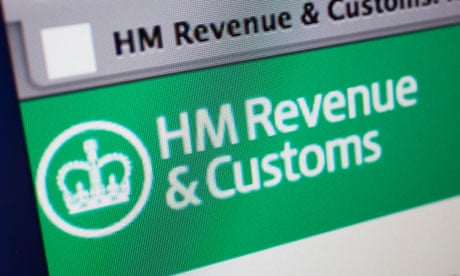Britain's most senior auditor, who set up a judge-led review into the "sweetheart" multimillion-pound tax deals between HM Revenue & Customs (HMRC) and corporations, appeared to undermine the process before it began by telling the country's most senior tax official that the inquiry would find "nothing of substance".
The revelations – contained in a previously unseen email sent by Dave Hartnett, the then head of HMRC – also bring to light the fact that Amyas Morse, the head of the National Audit Office (NAO), told his staff that the review by Sir Andrew Park would find no evidence of serious wrongdoing.
Tax campaigners allege that the disclosures in the email appear to show a cosy relationship between Morse and Hartnett and call into question the robustness of the NAO investigation and report.
They are of particular interest to lawyers for UK Uncut Legal Action, a pressure group which is suing HMRC over a secret tax deal with the investment bank Goldman Sachs enabling it to avoid a payment of up to £20m. HMRC's defence rests on the findings of the NAO report that the deal was "reasonable".
Anna Walker, of the pressure group, said: "[The e-mail] implies that the NAO was reassuring HMRC that their decision to let Goldman Sachs off many millions pounds of tax owed would be given the OK before the conclusions of Sir Andrew Park had been received. In fact, it suggests that the NAO decided that HMRC had not done anything wrong before its investigation had even begun.
"This reinforces the need for the full report, including details of the companies involved and the size of the settlements agreed between HMRC and the corporations, to be published without further delay."
The email, which is marked "private and confidential – please do not pass on to anyone without coming back to me", was sent by Hartnett on 15 December 2011 to 10 senior HMRC officials.
Morse set the parameters of the inquiry after it was alleged that companies such as Vodafone were not required to pay tax bills of up to £7bn following negotiations with HMRC. Hartnett, who has since stepped down from the job, had already admitted making mistakes while settling high-yield tax disputes with multinational companies.
In the email, Hartnett wrote that he had held a meeting that afternoon with Morse which was "useful and interesting". Hartnett went on: "Amyas has been insistent that Andrew Park tackles the cases one at a time. He [Morse] has told me that he has made clear to the NAO that his expectation is that nothing of substance will be found in the review."
Park concluded that HMRC did not seek proper legal advice, involve its own specialists or even take notes while negotiating settlements with large companies. Despite these failings, the NAO concluded that five negotiated settlements which were the subject of the report were "reasonable" and fair to the public purse. A public outcry then began over the deals, which let off five large corporations from paying billions of pounds in tax.
Senior HMRC officials had been severely criticised by members of the Commons public accounts committee in October 2011. Margaret Hodge, the committee's chair, accused Hartnett of misleading parliament – a charge he denied – and the committee felt the need to compel HMRC's most senior lawyer, Anthony Inglese, to swear on oath before giving evidence.
According to Hartnett's email, Morse apologised for the way that his officials had been treated by MPs. "He [Morse] did not envisage things playing out the way that they have and was sorry for the individuals in HMRC who had been bruised by the actions of the PAC and for the difficulties the department had experienced," Hartnett wrote.
The committee's members claim the email shows an overly close relationship between Hartnett and Morse which may have clouded Morse's judgement. One said: "If Hartnett's account is correct, it means that Amyas has been much too close and has serious questions to answer. He should also not be apologising on behalf of a parliamentary committee – way out of line." A spokesman for Morse declined to comment.
